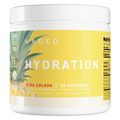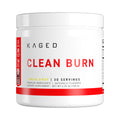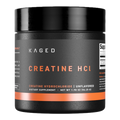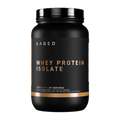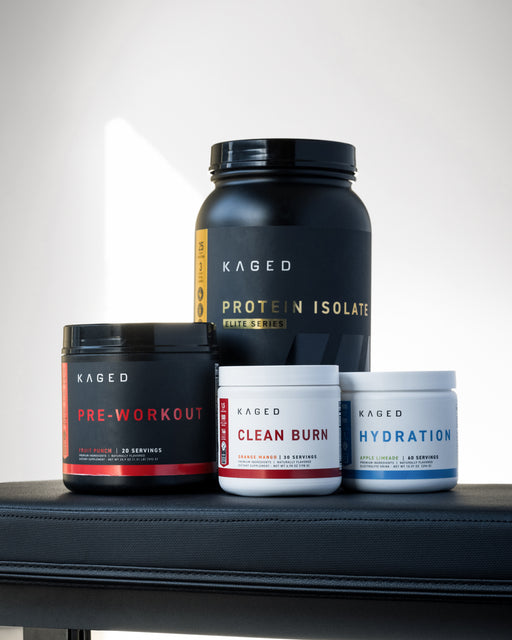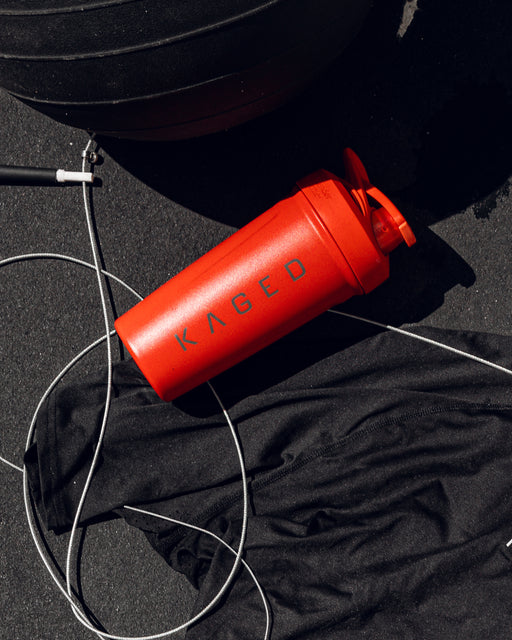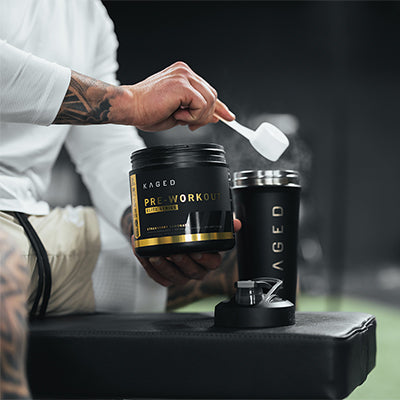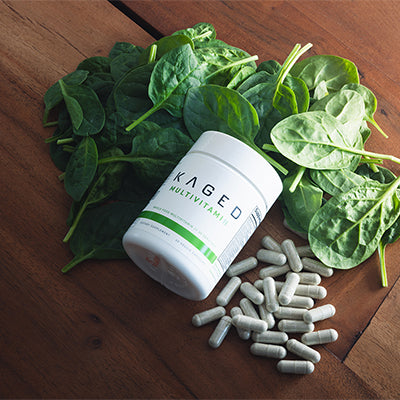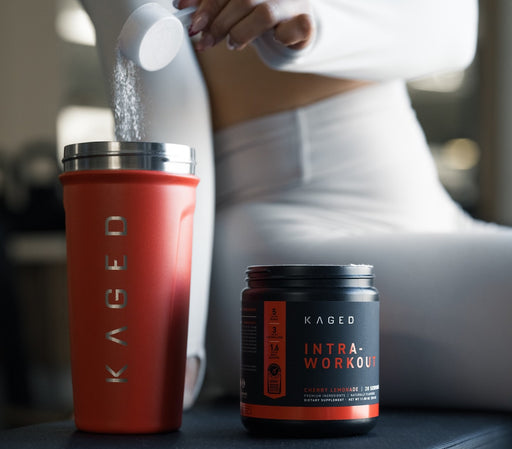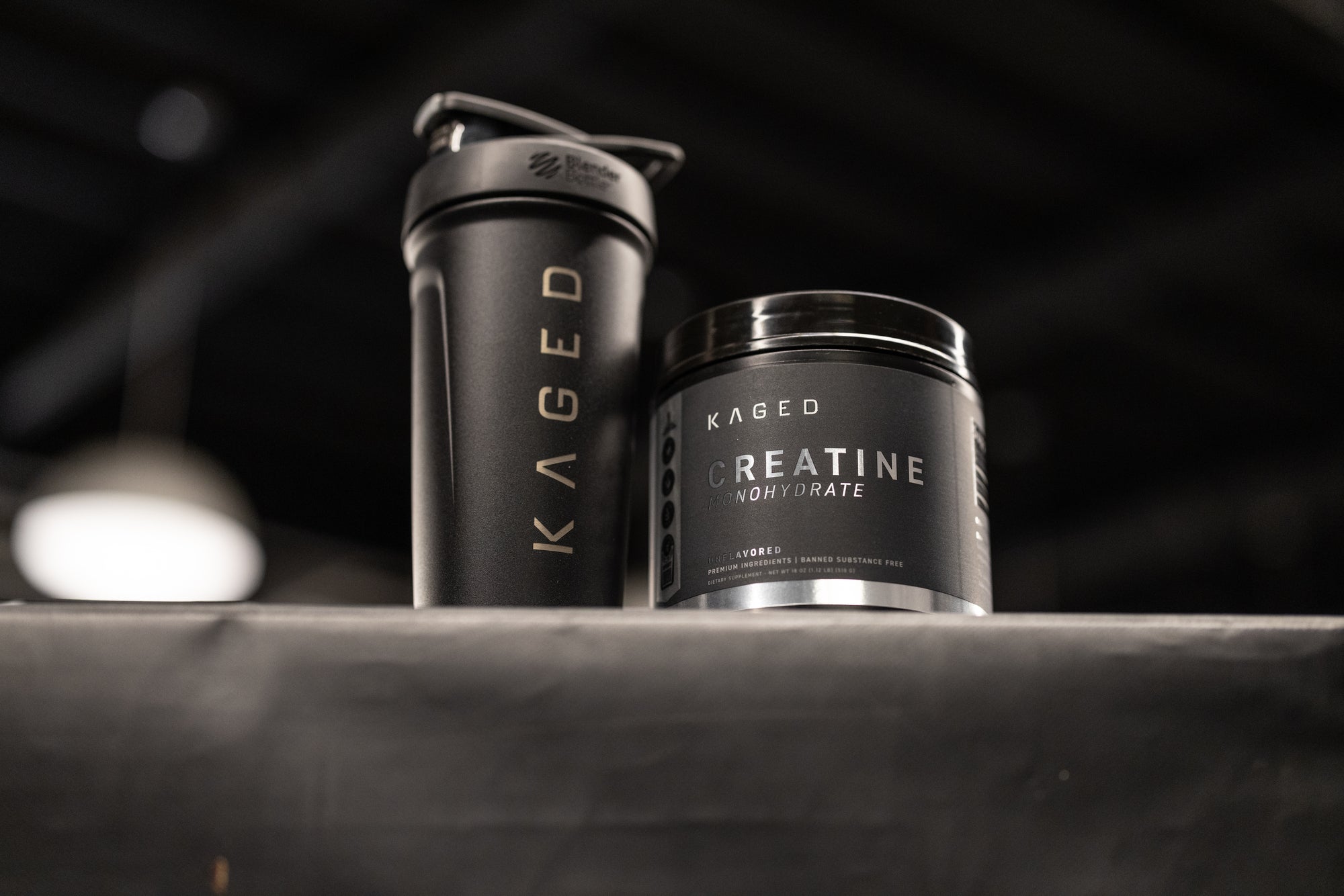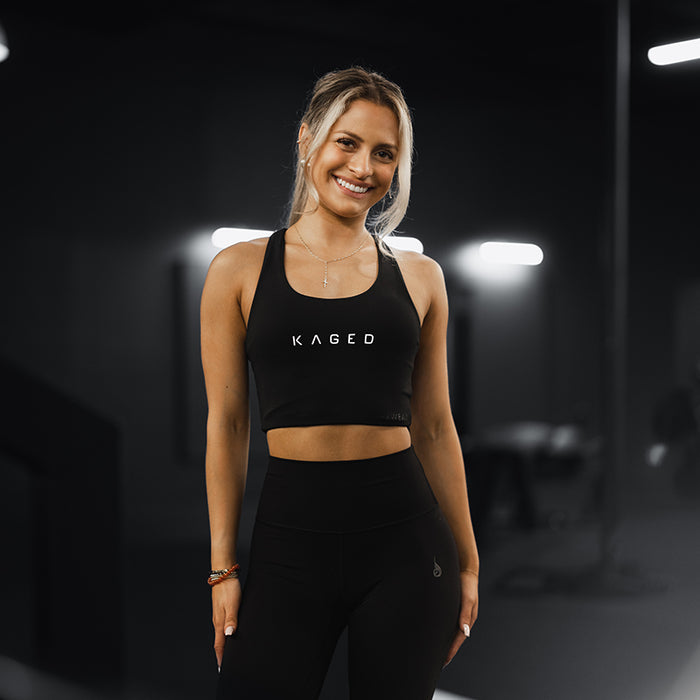There are 200+ studies backing the efficacy of creatine for supporting strength, muscle building, and exercise performance.*
Yet, in recent years, there’s been more research on how creatine may influence sleep and brain function in interesting ways. You may have heard about this on the latest podcasts or social media posts, but now we're seeing conversations emerge around creatine's role in cognition.
The research is still preliminary. Creatine should not be categorized as a sleep aid or cognitive enhancer. Yet, we want to showcase and explain the early results that hint at creatine’s power beyond muscle.
This research suggests that creatine might help people sleep more after workouts and think more clearly when tired.*
Key Takeaways on Creatine's Role In Sleep:
-
At a normal dose (5g), it may indirectly support sleep on training days by supporting brain metabolism
- At high doses (20-25g), it may support cognitive performance in sleep-deprived individuals.
- Creatine supports cognition, and therefore may support sleep, through similar mechanisms as it does overall performance.
- Taking creatine before bed will not keep you up, nor will it help you fall asleep faster. It is not a stimulant, and it is not a sedative. You can take it before bed if that's the time that works best for you.
Let’s get into this research.
Women Who Took 5g of Creatine a Day Slept More on Training Days
In a 2024 study in Nutrients, women took 5 grams of creatine daily while they followed a 6-week resistance-training program. Their sleep was tracked each night with a wearable ring. On days following workouts, the women taking creatine slept significantly longer than those on a placebo.
For example, on nights after training during the day, the creatine group averaged 7.4 hours of sleep versus 6.6 hours for those in the placebo group.
There were no big changes on rest days or in subjective sleep-quality surveys. The benefit seemed specific to training days.
How is this possible? One theory is that creatine helps support muscle and brain energy after exercise, which makes it easier to sleep well the night of a hard workout.

High-Dose Creatine Supported Cognitive Performance When Sleep-Deprived
Another recent study (Scientific Reports, 2024) examined creatine under extreme sleep loss.
Healthy adults received a single high dose of creatine (~0.35 g/kg, about 20–25 g for a 70 kg person) in the evening and were kept awake for ~21 hours.
Researchers tracked brain energy markers using brain scans and cognitive test scores. The result: creatine helped stabilize the brain’s energy reserves and performance.
Compared to a placebo, the creatine group maintained higher levels of brain phosphocreatine and ATP and had smaller drops in brain pH.
The creatine group also performed better on memory and processing speed tests. The creatine group blunted the usual cognitive decline from staying up all night.
In plain terms, when the brain was under the stress of sleep deprivation, creatine gave it extra fuel so it could keep working better.
However, there are a few notes here:
- This dose is 4-5x the typical 5g creatine dose. Normally, this dose is only recommended during a loading phase.
- The same benefits have not been replicated in those who aren’t sleep deprived.
Other Evidence: Survey and Animal Studies
Some broader clues on creatine's role in sleep come from diet surveys and animal experiments.
In a large U.S. health survey (NHANES), people who consumed the recommended amount of dietary creatine (1 g/day, typically from meat and fish) reported fewer mild sleep problems than those with very low intake.
In that study, about 23.7% of low-creatine individuals had trouble sleeping, versus 19.3% of higher-creatine ones (roughly a 30% higher odds of sleep issues when creatine intake was low). This is only an association, but it fits the pattern that adequate creatine might be linked to better sleep.
Animal research gives more insight. In one rat study, four weeks of daily creatine sharply reduced total sleep during the rats’ normal daytime rest period.
Creatine-fed rats spent more time awake and less in deep NREM sleep in the light phase, compared to controls. Brain measurements showed that creatine blunted the rise of adenosine (a sleep-promoting chemical) during wakefulness. In other words, with more readily available brain energy, the rats “felt” less sleepy and needed less deep sleep.
Taken together, these human and animal studies suggest a consistent theme: creatine seems to help the body cope with energy stress (from hard exercise or sleep loss). This could translate into extra sleep when it’s most needed or better performance when tired.
We still don’t have clear markers for what qualifies as “energy stress.” We don't know what doses, and for whom, this could be effective.
We would not recommend going out and taking 20g of creatine if you’re sleep-deprived right now without consulting your healthcare provider. However, it calls out an emerging area for creatine research. Regardless, the recommended 3-5g per day has been shown in study after study to support exercise performance, and that remains creatine’s main use case.*
Does Creatine Keep You Up or Help You Sleep?
After we shared this research, we got some common questions. First, can creatine keep you up? After all, in the rat study, rats who took creatine seemed to need less sleep. But this is very different than something like caffeine, which directly keeps you awake by blocking adenosine receptors within 30 minutes. Creatine works slowly over time, so taking it before bed will not impact your ability to fall asleep.
As we've written about before in our article on how long creatine takes to work, what's most important is that you take it, not when you take it. So yes, you can take creatine before bed without worrying about it keeping you up.
On the flip side, taking creatine before bed will not help you fall asleep that night. The most important thing to remember is that creatine isn't a fast-acting supplement like caffeine. It works slowly over time, as your body builds up creatine levels over days or weeks. The only exceptions to this seem to be studies with extremely high doses, like the 20-25g dose in the sleep-deprivation study.
Possible Mechanisms For Creatine’s Impact on Sleep
How might creatine affect sleep and the brain?
Energy Buffering
One idea is energy buffering. Creatine’s main role in cells is to replenish ATP (the cell’s energy currency) via phosphocreatine. More creatine means cells, including neurons, have a bigger energy reserve.
After intense exercise or prolonged wakefulness, this extra reserve might reduce how “tired” your brain and muscles feel. For example, in the sleep-deprivation study, brain scans showed steadier ATP and phosphocreatine levels with creatine and less performance drop.
Adenosine Signaling
Another factor is adenosine signaling. Adenosine builds up in the brain during wakefulness and makes us sleepy. The rat study found that creatine supplementation blunted the buildup of extracellular adenosine during sleep deprivation. If there’s less adenosine accumulation, the brain feels less pressure to sleep. This could explain why the creatine-fed rats slept less.
General Recovery
Creatine also affects brain chemistry and recovery in other ways. It’s been linked to modest increases in neurotransmitters (like serotonin) and improved brain-cell health. By supporting neuron survival and function, creatine can have positive effects on mood and cognition.
In muscles, creatine speeds up recovery from strain, which might indirectly ease inflammation that can disturb sleep. All of these factors might help explain why people could sleep a bit longer after heavy training when on creatine.
We don’t fully understand the mechanisms yet. But overall, creatine appears to give an “energy boost” at the cellular level, which can manifest as modest benefits for sleep and mental alertness under certain stresses.![]()
Practical Tips for Athletes

-
Keep taking creatine as usual. Most people take 3–5 g of creatine per day for muscle and performance benefits. Continue this routine. You may get the muscle-recovery perks and the emerging sleep/cognitive benefits. The positive sleep effects seen in studies came with daily use of around 5 g. If you’re new to creatine, check out our guide on creatine for beginners.
-
Focus on consistency, not timing. The improved sleep in the training-day study appeared after weeks of regular supplementation. Rather than changing when you take it, make sure you take creatine daily (on both training and rest days). You can take it post-workout or with a meal.
-
Make sure to take it on hard training days. If you know you’ll have a heavy workout, maintain your creatine dose.
-
Large doses aren’t necessary. Some studies used very high doses (e.g., ~25 g once) to probe effects under sleep deprivation. For everyday use, stick to standard doses (3–5 g daily). There’s no evidence that “mega-dosing” will boost sleep or alertness on its own.
-
Don’t neglect sleep hygiene. Creatine is not a substitute for good sleep habits. Keep a regular sleep schedule, a dark/quiet bedroom, and avoid screens or caffeine late at night.
-
Listen to your body. Some people report feeling slightly more awake after taking creatine. If you notice any trouble sleeping after starting creatine, you can adjust the timing (for example, take it earlier in the day rather than just before bed).
Kaged Creatine: Third-Party Certified and Banned Substance Free
All Kaged Creatine products are Informed-Sport Certified, a third-party certification that ensures each bottle is free from banned substances.
Our classic Creatine Monohydrate comes in at a great price point and with only 1 ingredient: pure creatine monohydrate.
Our Creatine HCl, meanwhile, mixes better than monohydrate, can be easier on the stomach, and comes in flavored options.
Learn more about creatine HCl vs monohydrate in this article.
*These statements have not been evaluated by the FDA. This product is not intended to diagnose, treat, cure, or prevent any disease.
